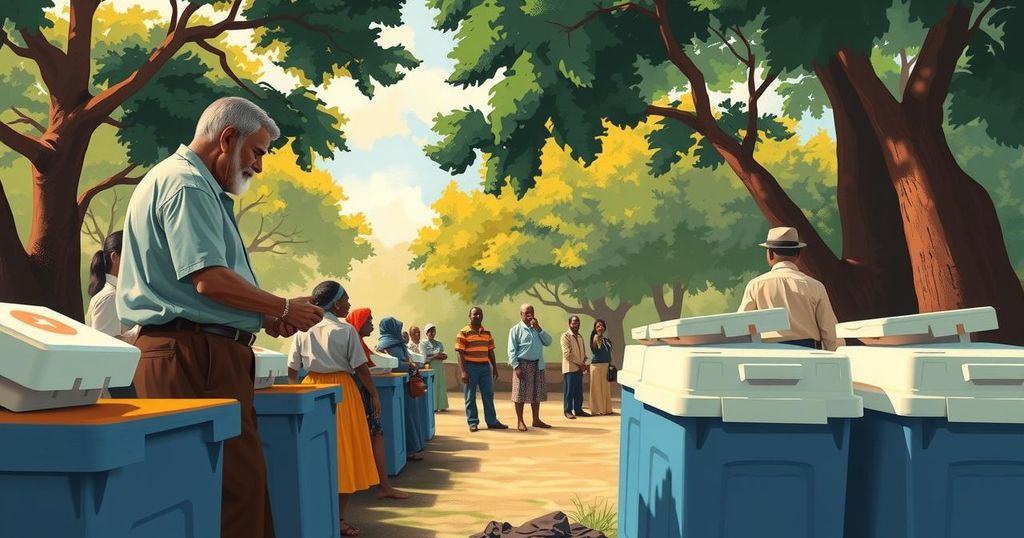Gabon Votes in Landmark Presidential Election Post-Military Coup

Gabon held its first presidential election since the 2023 military coup, with interim president Gen. Brice Clotaire Oligui Nguema expected to win against former prime minister Alain Claude Bilie-By-Nze. Registered voters number around 920,000, with concerns over economic hardship despite oil wealth. The election underscores the military’s push to legitimize its power while addressing public dissatisfaction.
The Gabonese voted on Saturday in the first presidential election since the 2023 military coup. This election aims to provide legitimacy to the military rulers following a political cycle that spanned over 50 years, terminated by a coup against President Ali Bongo Ondimba. Analysts suggest an overwhelming victory for interim President Gen. Brice Clotaire Oligui Nguema, who led the coup.
About 920,000 voters are registered, including over 28,000 from abroad, casting ballots at more than 3,000 polling stations. Despite Gabon’s oil wealth, a third of the 2.3 million population lives in poverty. Oligui Nguema intends to secure a seven-year term. Following his coup, Bongo faced charges related to corruption, with other family members detained but without charges against him.
Oligui Nguema has committed to restoring civilian rule through credible elections, promoting unity under the campaign slogan “We Build Together.” The parliament recently enacted a new electoral code permitting military participation in elections, and a revised constitution restricts presidential terms to seven years, renewable once, while eliminating the prime minister’s role and preventing family succession from the presidency.
The election features eight candidates, with Oligui Nguema’s main opponent being Alain Claude Bilie-By-Nze, Bongo’s ex-prime minister. Bilie-By-Nze advocates for public finance reform, job creation for youth, and reducing dependency on France. He expressed skepticism about the election’s fairness, citing measures that limit free voting.
Despite Gabon’s strategic partnership with France, where over 300 French soldiers remain, Bilie-By-Nze aims to renegotiate ties with France. Voting commenced smoothly in Libreville, with citizens showing engagement. Some, like Jonas Obiang, expressed discontent with the military regime, while others believed the interim leadership is improving the country. Jean Bie, for instance, credited Oligui Nguéma for executing projects stalled by the former regime.
The presidential election in Gabon marks a critical juncture following the military coup that overthrew a long-standing political dynasty. With a mixture of skepticism and hope from voters, the election could shape the nation’s future governance and its relationship with France. Interim President Oligui Nguema’s promise of reforms continues to be challenged by his opponents advocating for a change in leadership and economic improvement.
Original Source: www.news4jax.com







